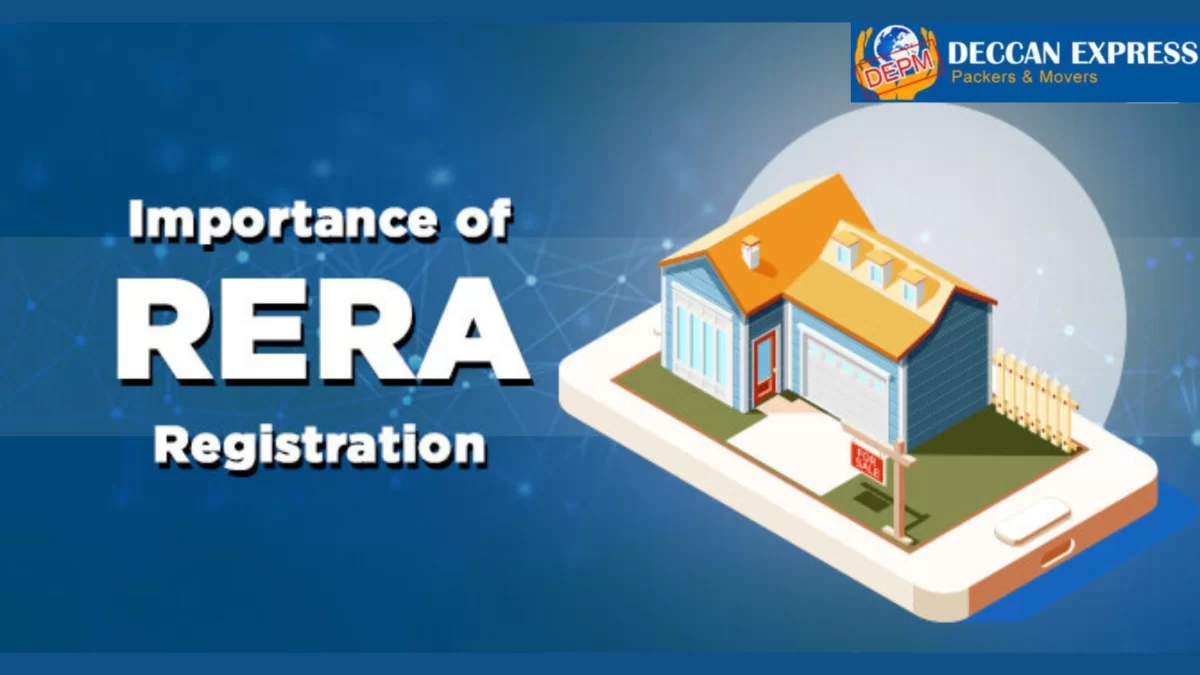It can be difficult to navigate the real estate market without the proper knowledge. The establishment of the Real Estate Regulatory Authority (RERA), which has revolutionised real estate transactions in India, is one of the most important advancements in this industry. The Real Estate Regulation and Development Act of 2016 created this government body, which went into effect on May 1st, 2016. Protecting home buyers’ interests and promoting openness in the real estate industry are the main goals of RERA. If you have hired Packers and movers in Hyderabad and moved to a new city, RERA registration can help you a lot in protecting your hard earned money invested in a property. In this article, we will discuss this in detail.
Meaning of RERA approval
The Real Estate (Regulation and Development) Act, 2016 (RERA) permits the registration of real estate projects or agents. Any residential or commercial real estate project with more than 500 square metres, or eight flats, of land must register with RERA. Obtaining an RERA approval for a project indicates to developers that it complies with the legal requirements. A project that has received RERA approval demonstrates to potential buyers that it has complied with legal requirements, resulting in more accountability and transparency. As soon as your property is registered in RERA and if you are from a different city, you can hire Home shifting services to shift your belongings to the new house without hesitation
How does RERA Registration help in Property Protection?
As discussed earlier, RERA is meant for the protection of property of consumers and protecting their legal rights. There are several key features and provisions of RERA act that safeguards consumer rights related to property protection. You can take help from your local Packers and movers you hired to shift in the city for knowing the RERA office. Some important features and provisions of RERA act are
- Establishment of Regulatory Authority
Every state and union territory must create the Real Estate Regulatory Authority (RERA) in accordance with the Act. Its role is to regulate transactions pertaining to real estate, both residential and commercial.
- Registration of Projects
Before marketing or selling, developers must register their projects with RERA. Projects that are larger than 500 square metres or contain more than eight flats are required to register.
- Transparency
All project information, including the project plan, layout, government approvals, land title status, contractors, architects, and other project participants, must be disclosed by developers.
- Separate Escrow Account
Seventy percent of the money that developers receive from customers must be deposited in a different account and utilised only for the project’s land and building costs.
- Rights of Consumers
Buyers are granted access to all project information under RERA. Additionally, it enables purchasers to assert ownership of the asset and the group of allottees.
- Carpet Area
The “carpet area” is defined by the Act and must be disclosed by developers. The carpet area, which does not include the thickness of the interior walls, is what the customer pays for; the extremely built-up area is not.
- Delay in Projects
Developers will be responsible for paying the same interest as the EMI that customers pay in the event of delays.
- Defect Liability
If structural flaws are discovered within five years, the developer shall be responsible for fixing them within thirty days at no additional cost.
- Real Estate Agents
Agents of real estate must also register with RERA. They will receive a unique registration number that they can use in all of their marketing.
- Penalties
The Act has severe penalties for breaking it, which include fines and even jail.



